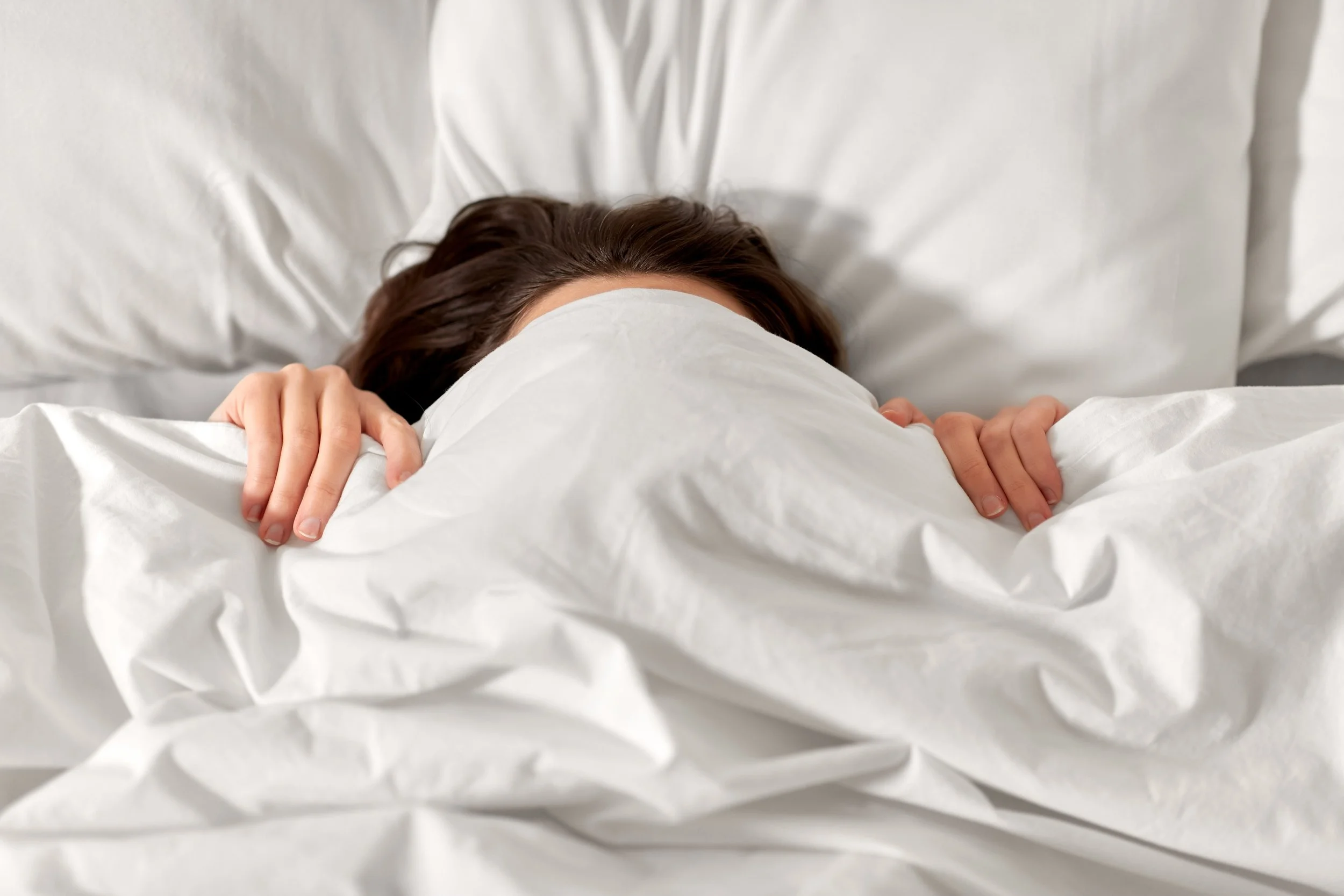3 Tips for Falling Back to Sleep After a Night Waking
If you're like most of my clients (and how I used to be), you don't have a hard time falling asleep; staying asleep is your issue. You're likely waking up around two or three o'clock in the morning, and it could take you a couple of hours to fall back to sleep, that is if you can fall back to sleep at all. I know all too well how frustrating night wakings can be and have helped not only hundreds of clients overcome night wakings but myself as well.
My mission is to help as many people as possible overcome their sleep issues so that they can live happy, healthy and productive lives. That is why today, I am providing my tips to help you fall asleep more quickly when you experience interrupted sleep.
Try to Be Zen About It.
First, when you wake up, try not to panic. I know it's tough, but just know that it is normal to wake up in the middle of the night. In fact, we all wake up about five times throughout the night between sleep cycles. Waking up briefly in the middle of the night is a protective mechanism that we have as humans so that we can do a quick environmental scan to ensure that there's no danger present.
Although these wake-ups are normal, they should be brief, 15 minutes max. However, if your body contains high amounts of cortisol due to mental and emotional stress or physical dysfunction, it can be challenging to fall back to sleep. That is because cortisol’s purpose is to keep you alert.
What happens is that you start to panic during these arousals, you may think to yourself, “Oh no, it's two o'clock in the morning; I'm not going to be able to fall back to sleep until four, and I am going to feel miserable tomorrow.” This type of thinking then leads to a full wake-up because, firstly our brain becomes very active, making it even more challenging to fall back to sleep. Secondly, this triggers the stress response, and your nervous system will enter the sympathetic mode, also known as fight or flight.
Whenever your body is in a sympathetic state, it thinks it’s being attacked, that there's danger. As a result, your body releases cortisol so that it has enough energy to either flee or fight for your life and that's the last thing you want your body to do in the middle of the night when you're trying to sleep.
Instead of panicking, normalize the situation. Tell yourself that you are waking-up in between sleep cycles and you’re aware of your surroundings because it's early in the morning. What you are experiencing is normal. There is nothing wrong with you. Then think pleasant thoughts like your bed is so comfortable and you will fall back asleep shortly.
2. Calm your nervous system with deep breathing.
If the positive affirmations don’t lull you back to sleep, the next step is to engage in breathing exercises. Deep breathing effectively turns your nervous system back into parasympathetic mode (rest and digest). In this state, your body will halt the production of cortisol, your heart rate will lower and your muscles will relax, allowing you to return to sleep.
Here are a few of simple breathing exercises I like to do…
4,7,8 Breathing - Made famous by Dr. Andrew Weill. How it works is you breathe in through your nose for four seconds, hold the breath for seven seconds and then exhale for eight seconds.
Box Breathing - with this exercise, you breathe in through your nose for four counts, hold for four counts, exhale for four counts and hold for four counts. Repeat four times.
Simple Deep Breathing - inhale through your nose slowly from your diaphragm and then exhale through your mouth very slowly. Your exhale needs to be longer than your inhale.
3. Regulate your blood sugar.
It is common for your blood sugar to drop overnight if you have blood sugar regulation issues. Whenever your blood sugar dips too low, your body will produce cortisol to raise it, waking you up.
If you suspect this happened, try eating a small balanced snack. You want to ensure that it contains protein, fat, and complex carbohydrates. A good example would be an apple with some nut butter, some hummus and veggies with a little olive oil sprinkled in, or a small smoothie.
If all else fails, get out of bed.
If you don't think that low blood sugar is to blame,or you had a snack and you're still unable to fall back to sleep, the next thing I want you to do is to get out of bed. I know it sounds counterproductive, but trust me on this one, if you stay in bed and start to stress out about not being able to fall back to sleep, it will make things worse.
Instead, if you get out of bed and do something relaxing, it will help to trigger your parasympathetic nervous system. It will also prevent your brain from associating your bed with a place where you experience stress. You want your subconscious to look at your bed as a place that you relax and sleep.
Do yourself a favor. Get out of bed. Do something you enjoy, like reading a book or listening to a podcast. Once you feel sleepy, hop back into bed and try to fall back asleep. If you still have trouble, repeat the process until you fall asleep.
Now, it may take a bit for this technique to work, but trust me, with practice, as soon as you get out of bed, your body's going to relax immediately and you're going to be able to fall back to sleep more quickly.
I know you dread getting out of bed, but don’t. Instead, consider it a positive experience. It is a time when you can do something you enjoy, like reading. It is a time that no one is demanding anything of you. You can just relax, which is the next best thing to sleeping.
Please give these tips a couple of weeks to work, If you're still unable to kick that middle of the night wake up, it is a sign that there's physical dysfunction at play. I would then recommend taking a closer look into your functional health.
Chronic insomnia is not a diagnosis. Instead, it is a symptom of dysfunction. It could be related to poor gut health, hormone imbalances, mineral deficiencies, blood sugar, regulation issues, or all of the above.
That's why if you work with me, we will run four functional lab tests to get to the root cause of what's waking you up and create custom protocols to heal your body and reclaim your sleep.
I need help!
If you're interested in learning more, let’s talk. You can schedule a free 30-minute discovery call here.


